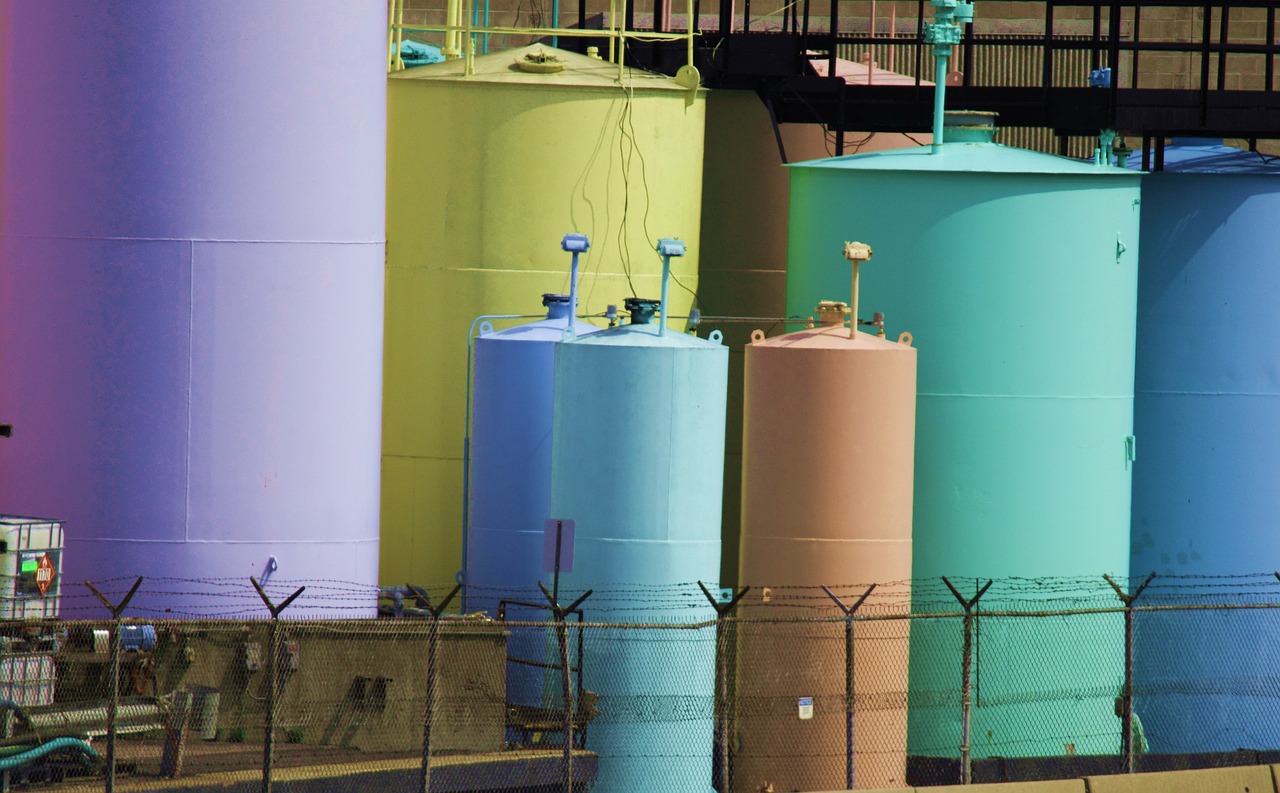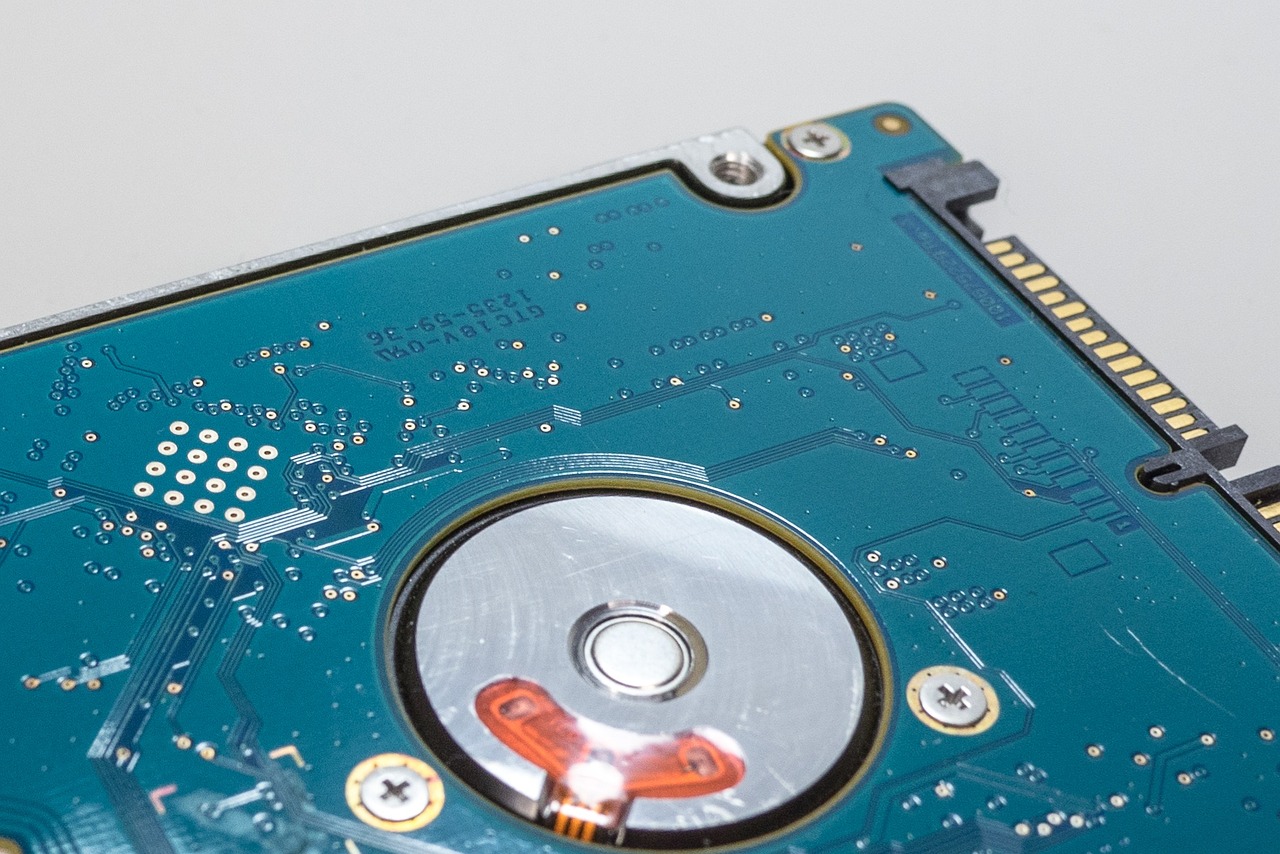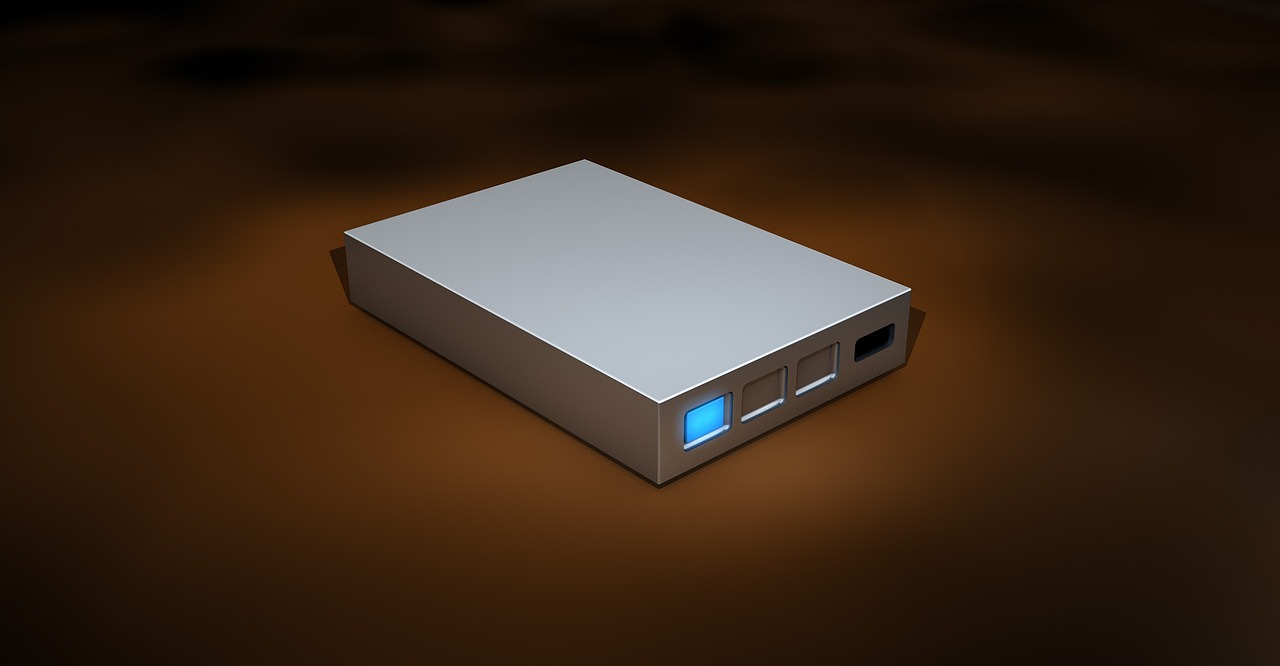Arweave - Permanent Data Storage Solutions
In an age where data is generated at an astonishing rate, the need for permanent data storage solutions has never been more critical. Enter Arweave, a groundbreaking technology that promises to revolutionize how we think about data preservation. Imagine a world where your memories, documents, and digital assets are stored forever, accessible at any time, without the fear of losing them due to server failures or company bankruptcies. Sounds like a dream, right? Well, Arweave is turning that dream into reality with its innovative approach to data storage.
At its core, Arweave is a decentralized storage network that allows users to store data permanently. Unlike traditional storage solutions where data can be deleted or become inaccessible over time, Arweave utilizes a unique blockchain-based architecture that ensures your data remains intact indefinitely. This is not just about storing files; it's about creating a digital permanence that transcends time and technology. With Arweave, you can rest assured knowing your information is not only stored but also secured against the vulnerabilities that plague conventional data storage methods.
But what makes Arweave stand out from the crowd? For starters, it combines the benefits of decentralization with a robust incentive model that encourages users to contribute their storage resources. This means that the network is not reliant on a single entity or server, significantly reducing the risk of data loss. Moreover, Arweave's unique cost structure allows users to pay once for permanent storage, eliminating ongoing fees that can add up over time. This innovative approach to data storage is not just a technical marvel; it's a paradigm shift that could redefine how individuals and organizations manage their digital assets.
As we delve deeper into the features and benefits of Arweave, you'll discover how its decentralized nature enhances security and integrity, how data redundancy ensures durability, and how advanced encryption methods protect sensitive information. With a plethora of potential applications, from archiving important documents to hosting decentralized applications, Arweave is paving the way for a future where data is not just stored, but preserved for eternity.

What is Arweave?
Arweave is not just another storage solution; it's a revolutionary decentralized network designed for permanent data storage. Imagine a library where every book you place on the shelf stays there forever, accessible to anyone at any time. That’s the essence of Arweave. Built on a unique blockchain technology, Arweave allows users to store their data permanently, ensuring it remains accessible and unaltered over time. This is a game-changer in a world where data can be lost, corrupted, or deleted with a mere click.
At its core, Arweave operates on the principle of permanence. Unlike traditional storage solutions that often rely on centralized servers, which can fail or be taken down, Arweave distributes data across a vast network of nodes. This decentralization not only enhances security but also ensures that the data remains intact and available, regardless of external factors. The underlying technology uses a novel consensus mechanism known as Proof of Access, which incentivizes users to store data while ensuring that the network remains robust and efficient.
One of the standout features of Arweave is its unique funding model. When users pay to store their data, they make a one-time payment that covers the cost of storage for eternity. This is a stark contrast to traditional models where ongoing fees can add up over time. The idea is simple: pay once, and your data is stored forever. This model not only makes Arweave a cost-effective solution but also encourages users to think long-term about their data storage needs.
To summarize, Arweave is a blend of innovation and practicality. Its decentralized architecture, permanent storage capability, and unique payment structure make it a compelling choice for individuals and organizations alike. Whether you’re looking to archive important documents or develop decentralized applications, Arweave provides a platform that not only meets your needs but exceeds your expectations.

Key Features of Arweave
Arweave stands out in the crowded field of data storage solutions thanks to its unique blockchain-based architecture and innovative incentive model. Unlike traditional storage systems that often rely on centralized servers, Arweave operates on a decentralized network that ensures data is stored permanently and securely. This means that once you upload your data, you can be confident it will remain accessible for as long as the network exists. Imagine a library where every book is guaranteed to never be lost, no matter what happens. That’s the kind of peace of mind Arweave offers!
One of the most compelling features of Arweave is its perpetual storage model. Users pay a one-time fee to store their data permanently. This is a game-changer compared to traditional models where you might have to pay ongoing fees or risk losing access after a certain period. With Arweave, you essentially buy a lifetime subscription to your data's existence. It’s like buying a plot of land where you can build your dream house, and you never have to worry about rent again!
Additionally, Arweave employs a unique incentive system that encourages users to contribute their storage space. This system is crucial for maintaining the network's health and sustainability. When users provide storage, they earn AR tokens, which can be seen as a form of currency within the Arweave ecosystem. This creates a thriving marketplace where both data storage and retrieval are incentivized. Think of it like a community garden where everyone contributes resources, and in return, they get to enjoy the fruits of their labor.
One of the cornerstones of Arweave's architecture is its decentralization. This means that your data isn't stored in one single location, which significantly enhances its security. Imagine a treasure chest filled with gold that is locked in a single vault; if that vault is compromised, all the treasure is lost. In contrast, Arweave distributes this treasure across multiple vaults, making it incredibly difficult for unauthorized access or data loss to occur. This decentralized approach ensures that your information remains intact and accessible, regardless of external threats.
Data redundancy is another critical feature of Arweave's infrastructure. By storing multiple copies of your data across various nodes in the network, Arweave ensures that your information is not only safe but also durable. Should one node fail, your data is still accessible from other nodes. This is akin to having multiple backups of your favorite photos stored in different places—if one gets lost, you still have others to fall back on. This redundancy provides users with a sense of security and reliability that is hard to find in traditional storage solutions.
To further bolster security, Arweave employs advanced encryption techniques to protect user data. This means that even if someone were to gain access to the storage nodes, the data would remain unreadable without the proper decryption keys. It's like having a locked diary with a secret code; even if someone finds it, they can’t read your personal thoughts without the key. This level of security is paramount for users storing sensitive information, ensuring that their data remains confidential and protected from prying eyes.
The cost structure of Arweave is another attractive feature. Unlike traditional cloud storage providers that charge monthly fees, Arweave's one-time payment model simplifies budgeting for data storage. This model not only makes it easier for users to plan their finances but also ensures that they won't face unexpected charges down the line. Additionally, the incentive mechanisms encourage users to contribute storage space, creating a self-sustaining ecosystem that benefits everyone involved. Users are rewarded for their contributions, fostering a sense of community and shared responsibility.

Decentralization and Security
In today's digital landscape, where data breaches and unauthorized access are all too common, the concept of decentralization emerges as a beacon of hope for data security. Arweave's architecture is built on a decentralized network, which means that data is not stored in a single location or controlled by a central authority. Instead, it is distributed across a multitude of nodes, each contributing to the overall storage capacity. This setup significantly enhances security by making it incredibly difficult for malicious actors to access or manipulate the data. Imagine trying to steal a treasure chest buried in a field filled with hundreds of other chests—each one equally well-hidden. That's the kind of challenge decentralization presents to potential attackers.
Moreover, decentralization brings with it a layer of data integrity. Since the data is spread across various nodes, there is no single point of failure. If one node goes down or is compromised, the data remains intact and accessible from other nodes. This redundancy acts like a safety net, ensuring that your information is not only secure but also resilient against potential threats. In a world where data loss can lead to catastrophic consequences for businesses and individuals alike, this feature is invaluable.
Another crucial aspect of Arweave's security model is the use of cryptographic techniques. Each piece of data stored on the Arweave network is encrypted, meaning that even if someone were to gain access to the physical storage, they would still be unable to read or manipulate the information without the proper decryption keys. This is akin to having a vault with a complex lock; without the right combination, the contents remain safe and sound. Arweave employs advanced encryption methods that protect sensitive information from unauthorized access, ensuring that only those with permission can view or alter the data.
In summary, the decentralized nature of Arweave not only enhances security but also fosters trust among users. By distributing data across a network of nodes and employing robust encryption techniques, Arweave creates a secure environment for permanent data storage. This innovative approach addresses many of the vulnerabilities associated with traditional centralized storage solutions, making Arweave a formidable player in the realm of data preservation.
- What is the main advantage of using Arweave for data storage?
Arweave offers permanent storage solutions that ensure data is not only securely stored but also easily accessible over time without the risk of deletion. - How does decentralization enhance security?
Decentralization distributes data across multiple nodes, reducing the risk of data loss or unauthorized access by eliminating single points of failure. - Are my files encrypted on Arweave?
Yes, all data stored on Arweave is encrypted, ensuring that only authorized users can access the information. - Can I trust that my data will be safe on Arweave?
Arweave's decentralized architecture and advanced encryption methods provide a high level of security, making it a trustworthy option for data storage.

Data Redundancy
When it comes to data storage, redundancy is like having a safety net beneath a tightrope walker. It ensures that even if one part fails, the entire structure remains intact. In the context of Arweave, data redundancy is a cornerstone of its architecture, providing users with exceptional durability and reliability for their stored information. But what exactly does this mean?
Arweave employs a unique method of data storage that not only saves information but also replicates it across multiple nodes in its decentralized network. This means that your data is not just sitting in one place, vulnerable to loss or corruption. Instead, it’s like having multiple copies of a cherished photograph stored in different albums across your home. If one album gets damaged, you still have others to rely on.
The benefits of data redundancy in Arweave can be summarized as follows:
- Enhanced Reliability: With multiple copies of data stored across various nodes, the likelihood of losing information due to hardware failure or network issues is significantly reduced.
- Increased Availability: Users can access their data even if some nodes go offline, ensuring that the information remains available whenever needed.
- Protection Against Data Corruption: If data becomes corrupted on one node, the system can retrieve the intact version from another, maintaining the integrity of the stored information.
In a world where data breaches and loss are prevalent, having a system that prioritizes redundancy is crucial. Arweave’s architecture not only safeguards your data but also provides peace of mind, allowing users to focus on what truly matters—leveraging their information without the constant fear of loss. Think of it as a digital insurance policy, where your data is protected against the unforeseen.
Moreover, the redundancy model employed by Arweave is not merely a safety measure; it is also a vital component of its decentralized nature. By distributing data across numerous nodes, Arweave mitigates risks associated with centralized storage solutions, where a single point of failure can lead to catastrophic data loss. This decentralized approach not only enhances security but also fosters a resilient ecosystem where data can thrive.
In summary, data redundancy in Arweave is more than just a technical feature; it is a fundamental principle that ensures the longevity and safety of your data. As we continue to navigate an increasingly digital world, having a robust system that prioritizes redundancy will be essential for individuals and organizations alike.
- What is data redundancy? Data redundancy refers to the practice of storing multiple copies of the same data to ensure its availability and integrity.
- How does Arweave ensure data redundancy? Arweave replicates data across various nodes in its decentralized network, providing multiple copies that enhance reliability.
- Why is data redundancy important? It protects against data loss, corruption, and ensures that information remains accessible even if some nodes fail.

Encryption Methods
In the digital age, where data breaches and cyber threats are rampant, encryption has become a cornerstone of data security. Arweave takes this aspect seriously, employing advanced encryption methods to ensure that the information stored on its platform remains confidential and protected from unauthorized access. At its core, Arweave uses a combination of encryption techniques that work together to create a robust security framework.
One of the primary methods used by Arweave is public-key cryptography. This technique allows users to encrypt their data with a public key, while only the corresponding private key can decrypt it. This means that even if someone intercepts the data, they would not be able to read it without access to the private key. This is particularly crucial for sensitive information, as it mitigates the risks associated with data theft.
Additionally, Arweave employs hashing algorithms to ensure data integrity. When data is stored on the network, it is processed through a hashing function that generates a unique hash value. This value acts like a digital fingerprint for the data. If the data is altered in any way, the hash will change, alerting users to potential tampering. This feature is essential for maintaining trust in the system, as it guarantees that the information remains unchanged over time.
Moreover, Arweave utilizes encryption at rest and in transit. Data at rest refers to data that is stored on servers, while data in transit refers to data being transferred across networks. By encrypting both states, Arweave ensures that user data is protected from the moment it is uploaded and remains secure throughout its lifecycle. This dual-layer of security adds an extra level of assurance for users who rely on Arweave for permanent data storage.
In summary, the encryption methods employed by Arweave are not just technical specifications; they are fundamental to the platform's promise of security and trust. By combining public-key cryptography, hashing algorithms, and encryption at both rest and transit, Arweave creates a comprehensive security framework that reassures users about the safety of their data. As the demand for secure data storage solutions continues to grow, Arweave's commitment to encryption sets it apart as a leader in the field.
- What is the main purpose of Arweave's encryption? Arweave's encryption aims to protect user data from unauthorized access and ensure data integrity.
- How does public-key cryptography work in Arweave? Public-key cryptography allows users to encrypt data with a public key, which can only be decrypted with a corresponding private key, enhancing security.
- What are hashing algorithms used for in Arweave? Hashing algorithms create a unique digital fingerprint of the data, ensuring that any unauthorized changes can be detected.
- Is my data secure while being transferred to Arweave? Yes, Arweave encrypts data both at rest and in transit, providing comprehensive security throughout the data's lifecycle.

Cost Structure and Incentives
Arweave's cost structure is one of its most compelling features, designed to not only attract users but also to sustain the network over the long term. Unlike traditional cloud storage solutions that often charge monthly fees, Arweave operates on a unique one-time payment model. This means that once you pay to store your data, it remains accessible permanently without any recurring costs. Imagine paying a single fee to keep your treasured memories, important documents, or even your entire digital library safe forever. This model is not just innovative; it fundamentally changes how we think about data storage.
At the heart of Arweave's cost structure is its incentive mechanism, which encourages users to contribute their storage space to the network. Users who provide storage are compensated with AR tokens, the native cryptocurrency of the Arweave ecosystem. This creates a symbiotic relationship where users are rewarded for their contributions, while the network becomes more robust and reliable. The more users that participate, the more decentralized and secure the network becomes, which is a win-win situation for everyone involved.
Furthermore, Arweave employs a unique profit-sharing model that benefits both the storage providers and the network as a whole. When users pay to store their data, a portion of that payment is distributed among those who provide storage, creating a continuous incentive for them to maintain their contributions. This model not only enhances the network's sustainability but also encourages a community-driven approach to data storage.
To give you a clearer picture, here’s a breakdown of how the cost structure and incentives work:
| Aspect | Details |
|---|---|
| Payment Model | One-time fee for permanent storage |
| Storage Providers | Compensated with AR tokens for contributing storage |
| Profit Sharing | Part of user payments goes to storage providers |
| Community Engagement | Encourages a decentralized and secure network |
This innovative approach not only makes Arweave a cost-effective solution for data storage but also fosters a community where users feel valued and incentivized to participate. In a world where data is becoming increasingly valuable, Arweave's model stands out as a beacon of sustainability and security.

Use Cases for Arweave
Arweave is not just a buzzword; it's a game-changer in the realm of data storage. Its unique ability to provide permanent data storage opens the door to a myriad of applications across various industries. Imagine being able to store your data forever without the risk of losing it due to server failures or technological obsolescence. This is where Arweave shines, offering solutions that can transform the way businesses and individuals think about data preservation.
One of the most compelling use cases for Arweave is in the realm of archiving important documents. Organizations often face challenges when it comes to compliance and accessibility of vital records. With Arweave, companies can securely archive documents such as contracts, legal files, and historical records in a decentralized manner. This not only ensures that the information remains intact but also allows for easy retrieval when needed. Think of it as having a digital vault where your most critical documents are stored securely and are always accessible, no matter the circumstances.
Another exciting application is in the development of decentralized applications (dApps). Developers can leverage Arweave’s permanent storage to host their dApps, ensuring that the data remains available indefinitely. This is particularly crucial for applications that rely on user-generated content, such as social media platforms or collaborative tools. By using Arweave, developers can eliminate the worry of data loss due to server downtime or data migration issues. It’s like building a house on a solid foundation; once it’s there, it’s not going anywhere.
Additionally, Arweave can serve as a solution for digital art and NFTs. Artists can store their creations permanently on the Arweave network, ensuring that their work is preserved for future generations. This is particularly important in the rapidly evolving digital landscape, where art can easily be lost or forgotten. By utilizing Arweave, artists can maintain ownership and ensure their work is accessible, much like a museum housing priceless artifacts.
In the realm of education, institutions can benefit from Arweave by archiving research papers, theses, and educational materials. This not only helps in preserving knowledge but also promotes accessibility for students and researchers worldwide. Imagine a world where all academic work is readily available and never lost, fostering a culture of learning and collaboration.
To summarize, Arweave’s potential applications are vast and varied. Whether it's for archiving important documents, hosting decentralized applications, preserving digital art, or enhancing educational resources, Arweave provides a robust solution for permanent data storage. The possibilities are limited only by our imagination, and as more people recognize the value of permanent data storage, Arweave is poised to become a cornerstone of the digital landscape.
- What is Arweave? Arweave is a decentralized storage network that allows users to store data permanently.
- How does Arweave ensure data security? Arweave employs a decentralized structure and advanced encryption methods to protect data from unauthorized access.
- Can I use Arweave for personal projects? Absolutely! Arweave is suitable for both personal and professional projects, offering a reliable solution for long-term data storage.
- Is Arweave scalable? While scalability is a concern, Arweave is continuously working on solutions to accommodate growing user demand.

Archiving Important Documents
In today's fast-paced digital world, the need for **reliable** and **permanent** data storage has never been more critical. Organizations are inundated with a plethora of documents, from legal contracts to financial records, and the challenge of keeping these documents safe and accessible is daunting. That's where Arweave steps in, providing a unique solution that not only addresses these concerns but also revolutionizes how we think about data archiving.
Imagine a world where your vital documents are stored forever, untouched by the ravages of time or the risks of server failures. With Arweave, this is not just a dream; it's a reality. The platform's **permanent storage** guarantees that once you upload a document, it will remain there indefinitely, eliminating the anxiety of potential data loss. This is particularly beneficial for organizations that must comply with strict regulatory requirements, ensuring that their records are not only preserved but also easily retrievable when needed.
One of the standout features of Arweave is its **decentralized nature**, which means that your documents are not stored on a single server that could crash or be compromised. Instead, they are distributed across a network of nodes, enhancing both security and accessibility. This system significantly reduces the risk of unauthorized access or data corruption, making it an ideal choice for archiving sensitive information.
Moreover, the process of archiving with Arweave is straightforward. Users can upload their documents through a user-friendly interface, and the system takes care of the rest. Here's a brief overview of the archiving process:
- Upload: Simply drag and drop your documents into the Arweave interface.
- Confirmation: Review and confirm your upload to ensure everything is correct.
- Storage: The document is permanently stored on the Arweave network.
- Access: Retrieve your documents anytime, anywhere, with just a few clicks.
This seamless experience not only saves time but also allows organizations to focus on their core activities rather than worrying about data management. Additionally, Arweave's **cost structure** is designed to make permanent storage economically viable. By paying a one-time fee, organizations can ensure that their documents are stored forever, eliminating the ongoing costs associated with traditional storage solutions.
In conclusion, archiving important documents with Arweave is not just about storage; it's about peace of mind. Organizations can rest assured that their critical documents are safe, secure, and accessible whenever needed. As we move further into the digital age, the importance of reliable data archiving solutions like Arweave will only continue to grow.
- What types of documents can I archive with Arweave? You can archive any type of document, including PDFs, images, and more.
- Is my data secure on Arweave? Yes, Arweave employs advanced encryption and a decentralized network to ensure your data remains secure.
- Can I access my archived documents at any time? Absolutely! You can retrieve your documents anytime, anywhere.
- What happens if I lose my access credentials? Arweave allows for recovery options to ensure you can regain access to your documents.

Decentralized Applications (dApps)
Decentralized applications, or dApps, are the future of software development, and Arweave plays a significant role in this transformation. Unlike traditional applications that rely on centralized servers, dApps operate on a decentralized network, providing a level of transparency and security that is hard to achieve with conventional systems. Imagine a world where your data isn't controlled by a single entity but is instead distributed across a vast network of nodes—this is the essence of dApps powered by Arweave.
One of the standout features of using Arweave for dApp development is its permanent data storage. When developers build applications, they often face challenges related to data persistence. Traditional storage solutions can be unreliable; data can be lost or become inaccessible due to server failures or company shutdowns. With Arweave, however, developers can ensure that their data remains intact indefinitely. This permanence is particularly crucial for applications that require long-term data retention, such as social media platforms, voting systems, or any service that needs to maintain historical records.
Moreover, the incentive model of Arweave encourages developers to contribute to the network's growth. By providing storage space, they not only support the ecosystem but can also earn tokens in return. This unique approach creates a vibrant community of developers and users who are invested in the success of the network. As more dApps are built on Arweave, they collectively enhance the platform's reliability and appeal, drawing in more users and developers alike.
Another significant advantage of dApps on Arweave is their resilience against censorship. In a world where information can be easily manipulated or deleted, having a decentralized application ensures that once data is uploaded, it cannot be altered or removed by any single party. This makes Arweave an attractive option for applications that prioritize freedom of expression and data integrity. For instance, a news platform built on Arweave could provide users with a safe space to share and access information without fear of censorship.
In summary, the integration of Arweave with decentralized applications offers a powerful solution for developers looking to build the next generation of software. With its permanent storage, robust incentive model, and resistance to censorship, Arweave not only enhances the functionality of dApps but also aligns perfectly with the ethos of decentralization. As more developers recognize these benefits, we can expect to see a surge in innovative applications that leverage the strengths of Arweave, ultimately transforming how we interact with technology.
- What are dApps?
Decentralized applications (dApps) are applications that run on a decentralized network, allowing for greater transparency and security compared to traditional applications. - How does Arweave ensure data permanence?
Arweave uses a unique blockchain-based structure that allows users to store data permanently, making it accessible indefinitely. - What advantages do dApps on Arweave have?
DApps on Arweave benefit from permanent data storage, an incentive model for developers, and resistance to censorship. - Can I earn tokens by contributing to Arweave?
Yes, developers can earn tokens by providing storage space to the Arweave network.

Challenges and Limitations
While Arweave presents an innovative solution for permanent data storage, it is essential to acknowledge that it is not without its . Understanding these factors can help users make informed decisions about adopting this technology. For instance, one of the primary concerns surrounding Arweave is its scalability. As more users flock to the platform, the demand for storage capacity will inevitably increase. This surge can strain the network, leading to potential performance issues. In a world where data is growing exponentially, scalability is crucial for any storage solution. If Arweave cannot keep up with the rising tide of data, it risks becoming less viable for users who require reliable and efficient access to their information.
Another challenge Arweave faces is the competitive landscape of data storage solutions. With numerous alternatives available, such as traditional cloud storage services and emerging blockchain-based platforms, Arweave must continually demonstrate its unique value proposition. Users often weigh factors like cost, ease of use, and performance when choosing a storage solution. If Arweave cannot effectively communicate its advantages over competitors, it may struggle to gain traction in a crowded market.
Moreover, while Arweave's decentralized nature offers enhanced security, it also raises questions about data governance. Who is responsible for maintaining the integrity of the data stored on the network? In a decentralized system, accountability can sometimes become murky. Users must trust that the network will function as intended and that their data will remain safe from unauthorized access or malicious attacks. This uncertainty can deter some organizations from fully embracing Arweave as a permanent storage solution.
Lastly, there are also concerns regarding the cost structure. Although Arweave's innovative incentive model encourages users to contribute storage space, the overall costs associated with this model can be a double-edged sword. As demand increases, so too could the costs of storing data on the platform. Users must carefully evaluate whether the long-term benefits of permanent storage outweigh the potential financial implications.
- What is Arweave? Arweave is a decentralized storage network designed for permanent data storage, allowing users to store information indefinitely.
- How does Arweave ensure data security? Arweave employs a decentralized structure, advanced encryption methods, and data redundancy to protect stored information from unauthorized access and data loss.
- What are the primary challenges Arweave faces? Key challenges include scalability issues, competition from other storage solutions, questions around data governance, and potential costs associated with its unique incentive model.
- Can Arweave be used for archiving important documents? Yes, organizations can utilize Arweave to archive vital documents permanently, ensuring compliance and accessibility.

Scalability Concerns
When it comes to data storage solutions, scalability is a crucial aspect that determines how well a system can handle growth. In the case of Arweave, while the technology offers a robust framework for permanent data storage, it also faces some significant scalability challenges. As more users flock to the platform, the demand for storage space and bandwidth increases exponentially. This surge can lead to potential bottlenecks, affecting the overall performance and efficiency of the network.
One of the primary concerns is the capacity of the network. Arweave's unique model allows users to pay once for permanent storage, which means that the initial influx of data might be manageable. However, as more users upload data, the system must maintain a balance between supply and demand. If the network can't accommodate this growth, it may lead to slower access times and higher latency. Imagine trying to fit an ever-expanding crowd into a small room; eventually, it will become overcrowded, making it uncomfortable for everyone involved.
Moreover, the decentralized nature of Arweave means that data is spread across numerous nodes. Each node has its limitations in terms of storage capacity and processing power. As the network grows, some nodes may become overloaded, which could result in data retrieval issues. To tackle this, Arweave developers need to find innovative ways to enhance the network's infrastructure, ensuring that it can effectively manage a growing user base without compromising on performance.
Another aspect to consider is the cost of expansion. While Arweave has a unique incentive model that encourages users to contribute storage space, scaling the network may require additional resources. This could lead to higher costs for both developers and users. It's essential for the team behind Arweave to strike a balance between maintaining affordable pricing and ensuring the network can grow sustainably.
To address these scalability concerns, Arweave may need to implement several strategies, such as:
- Optimizing Data Storage: Implementing more efficient algorithms for data storage and retrieval can help alleviate some of the pressure on the network.
- Increasing Node Participation: Encouraging more users to contribute their storage resources can help distribute the load more evenly across the network.
- Developing Layer 2 Solutions: Exploring layer 2 solutions could provide additional scalability options, allowing for faster transactions and data handling.
In conclusion, while Arweave presents a promising solution for permanent data storage, its scalability concerns cannot be overlooked. As the platform continues to evolve, addressing these challenges will be crucial for its long-term success and user satisfaction. The journey of scaling a decentralized network is akin to nurturing a growing tree; it requires careful planning, robust support, and the right conditions to flourish.
- What is Arweave? Arweave is a decentralized storage network designed to provide permanent data storage solutions.
- How does Arweave ensure data permanence? Arweave uses a unique blockchain-based structure that allows users to pay once for permanent storage.
- What are the main challenges faced by Arweave? Scalability concerns, market competition, and the need for continuous technological innovation are some of the significant challenges.
- Can I use Arweave for sensitive data? Yes, Arweave employs advanced encryption methods to secure data, making it suitable for sensitive information.

Market Competition
The landscape of data storage solutions is constantly evolving, and Arweave finds itself navigating through a sea of competitors. In this digital age, where data is the new oil, the demand for reliable, secure, and permanent storage is skyrocketing. Arweave, with its unique approach to permanent data storage, faces competitors ranging from traditional cloud storage providers to emerging decentralized solutions. Understanding its position relative to these players is crucial for potential users and investors alike.
One of the primary competitors to Arweave is traditional cloud storage services like Amazon Web Services (AWS) and Google Cloud. These giants offer scalable storage solutions with robust infrastructure and a plethora of features. However, they typically operate on a subscription model, meaning users pay ongoing fees for storage, which can accumulate over time. In contrast, Arweave's one-time payment model for permanent storage can be a compelling alternative for users seeking long-term data preservation without the burden of recurring costs.
Additionally, decentralized storage networks such as Filecoin and Storj are also vying for a share of the market. These platforms utilize blockchain technology to provide decentralized storage, similar to Arweave. However, they often focus on short-term storage solutions with a pay-per-use model. Arweave's unique selling proposition lies in its ability to offer permanent storage, which is not just a temporary solution but a long-lasting repository for critical data. This distinction is vital as organizations increasingly recognize the importance of archiving essential documents and data for compliance and historical purposes.
Furthermore, the competition is not just about technology but also about community and support. Arweave has cultivated a vibrant ecosystem of developers and users who contribute to its growth and sustainability. The community-driven approach fosters innovation and collaboration, setting Arweave apart from competitors that may not prioritize user engagement. As the market continues to mature, the ability to adapt and respond to user needs will be crucial for maintaining a competitive edge.
In terms of market positioning, Arweave's focus on permanent storage addresses a specific niche that appeals to various sectors, including government, education, and healthcare. These industries often require stringent compliance with data retention regulations, making Arweave an attractive option. The table below summarizes how Arweave compares to its primary competitors:
| Feature | Arweave | Amazon Web Services | Filecoin |
|---|---|---|---|
| Storage Type | Permanent | Temporary/Subscription | Temporary/Pay-per-use |
| Decentralization | Fully Decentralized | Centralized | Decentralized |
| Cost Structure | One-time Payment | Recurring Fees | Variable Costs |
| Target Industries | All Industries | All Industries | Tech-focused |
In conclusion, while Arweave faces stiff competition from both traditional and decentralized storage solutions, its unique value proposition of permanent data storage, coupled with a strong community and adaptable technology, positions it well in the market. As more organizations recognize the importance of long-term data preservation, Arweave's innovative approach could very well secure its place as a leader in the future of data storage.
- What is Arweave? Arweave is a decentralized storage network that allows users to store data permanently.
- How does Arweave ensure data security? Arweave employs advanced encryption methods and decentralization to protect data from unauthorized access.
- What are the benefits of using Arweave over traditional storage solutions? Arweave offers permanent storage with a one-time payment model, unlike traditional services that charge recurring fees.
- Can I use Arweave for business purposes? Yes, Arweave is suitable for various industries, including government, education, and healthcare, for archiving vital documents.
- What challenges does Arweave face? Arweave faces scalability concerns and competition from other storage solutions, but its unique features help maintain its market position.
Frequently Asked Questions
- What is Arweave and how does it work?
Arweave is a decentralized storage network designed for permanent data storage. Unlike traditional storage solutions, it utilizes a blockchain-based structure that ensures data is stored indefinitely. Users can upload data, which is then distributed across a network of nodes, making it resilient against loss and unauthorized access.
- What are the key features of Arweave?
Arweave boasts several innovative features, including decentralization, security through advanced encryption, and a unique incentive model. These features work together to provide a reliable and secure platform for storing data permanently, ensuring that it remains accessible and protected from potential threats.
- How does Arweave ensure data security?
The security of data on Arweave is enhanced by its decentralized nature, which minimizes the risk of data loss and unauthorized access. Additionally, Arweave employs advanced encryption methods to safeguard sensitive information, ensuring that only authorized users can access their stored data.
- What are the potential use cases for Arweave?
Arweave has numerous applications across various industries. Organizations can use it for archiving important documents, ensuring compliance and easy access. Moreover, developers can host decentralized applications (dApps) on Arweave, benefiting from its permanent data storage capabilities.
- What challenges does Arweave face?
Despite its advantages, Arweave encounters challenges such as scalability concerns as user demand grows. Additionally, it operates in a competitive landscape, where maintaining its unique value proposition against other data storage solutions is crucial for its success.
- How does the cost structure of Arweave work?
Arweave's cost structure is designed to encourage users to contribute storage space. Users pay a one-time fee for permanent storage, which supports the network's sustainability. This unique approach ensures that data remains accessible for years to come without recurring costs.



















